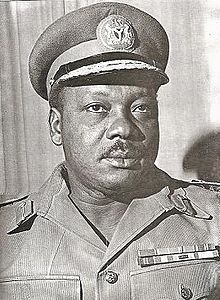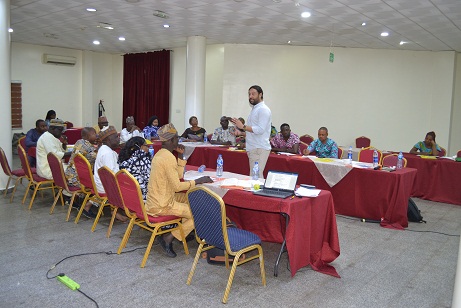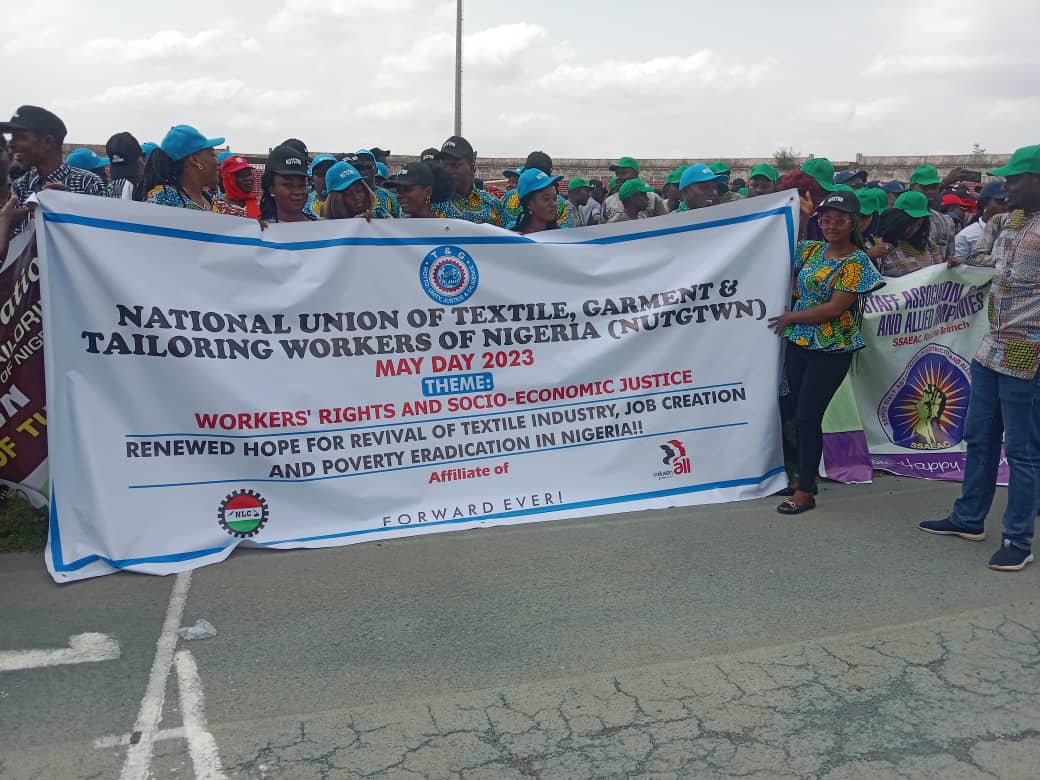
But for the 1966 military coup which ended for the first time the democratic civilian rule during which  by default (not by election) emerged military head of state, Nigeria should this year be marking uninterrupted 59 years of democracy and independence. It was democracy at independence. Often because of our current frustrations about the challenges of development, we forget to acknowledge our strength as a nation. Democratic heritage is one of our strengths. Nigerian independence in 1960 was fought for and won by clear headed civilian democrats not military adventurers who later years ruined the nation through coups, counter coups with an avoidable civil war. They deployed democratic methods; peaceful pressures, strikes, protests, persuasion, negotiations, referendums and elections. All Nigerian founding fathers and mothers were civilian democrats not military men. They include Herbert Macaulay (1864-1946), Professor Eyo Ita (1904-1980s), Alvan Ikoku (1900-1971), Michael Imoudu (1900-2005), Dr. Nnamdi Azikiwe (1904-1996), Chief Obafemi Awolowo (1909-1987), Sir Ahmadu Bello (1910-1966), Sir Abubakar Tafawa Balewa (1912-1966), Sir Egbert Udo Udoma (1917-1998), Mallam Aminu Kano (1920-1983), Joseph Tarka (1932-1980) and Dennis Osadebay (1911-1994) among others.
by default (not by election) emerged military head of state, Nigeria should this year be marking uninterrupted 59 years of democracy and independence. It was democracy at independence. Often because of our current frustrations about the challenges of development, we forget to acknowledge our strength as a nation. Democratic heritage is one of our strengths. Nigerian independence in 1960 was fought for and won by clear headed civilian democrats not military adventurers who later years ruined the nation through coups, counter coups with an avoidable civil war. They deployed democratic methods; peaceful pressures, strikes, protests, persuasion, negotiations, referendums and elections. All Nigerian founding fathers and mothers were civilian democrats not military men. They include Herbert Macaulay (1864-1946), Professor Eyo Ita (1904-1980s), Alvan Ikoku (1900-1971), Michael Imoudu (1900-2005), Dr. Nnamdi Azikiwe (1904-1996), Chief Obafemi Awolowo (1909-1987), Sir Ahmadu Bello (1910-1966), Sir Abubakar Tafawa Balewa (1912-1966), Sir Egbert Udo Udoma (1917-1998), Mallam Aminu Kano (1920-1983), Joseph Tarka (1932-1980) and Dennis Osadebay (1911-1994) among others.
The troika of Obafemi Awolowo, Nnamdi Azikiwe, and Ahmadu Bello remained the true faces of Nigerian democracy. It was also the political parties together with mass organizations like trade unions that fought for the independence. The five major political parties that fought for independence were the National Council of Nigeria and the Cameroons (NCNC; from 1960 known as the National Convention of Nigerian Citizens), led by Azikiwe, the Action Group, led by Obafemi Awolowo and the Northern People’s Congress (NPC), led by Ahmadu Bello. Others were Northern Elements Progressive Union (NEPU) and United Middle Belt Congress (UMBC). Notwithstanding therefore long period of military intervention, Nigeria has a rich democratic heritage in party formations. Wednesday May 29th marks two decades of uninterrupted civil rules. Quantitatively, this is the 6th transition with 4th democratically elected President and second re-elected President. Many thanks to President Buhari for declaring June 12th as the Nigeria’s real democracy Day making Nigeria overcome the “the pettiness of one man” (to quote the Elder statesman Edwin Clark) who arbitrarily declared May 29th as Democracy day in 1999. If that singular free and fair election of 1993 had not been criminally annulled, we should be marking the 26th anniversary of democracy this year. Nevertheless Nigeria remains the largest democracy in Sub-Sahara Africa. INEC reported that as many as 83 million voters registered for 2019 elections. That was almost the population of Egypt. That was almost twice the population of South Africa of 52 million people and three times the population of Ghana of 26 million. Sadly it is regrettable that the long period of military rule had done so much damage to our democratic culture. Unlike in the past, elections have become unnecessary wars of attritions. It’s time we had a quality control of our democratic process.
We have achieved much in quantitative terms. It is now time to have quality democratic process. Just some few qualitative things. Authoritarianism has manifested itself in Nigeria through years of military rule marked by absence of debate, intimidation, disregard of civil rights, and non-chalance about due process and the rule of law. We must therefore encourage a new Democratic culture that allows for unfettered free policy debate. Let’s have a healthy debate about fixing electricity, reviving the railways and repositioning our foreign polices instead of throwing missiles at each other. In order for democracy to function, the participants must accept that only ideas can win the conflict in a democracy. The winners should govern according to the set of ideas most favoured by the electorate and be willing to concede power at the next election if his or her ideas do not convince the electorate. To have healthy contest of ideas not conquest of territories, we need certain level of discipline among the participants to respect the rules of the game and to implement them fairly. In Nigeria, politics is still seen as a winner-takes-all positions. In most cases, ends justify the means. We must reverse this zero sum game and make politics a win-win for all participants. There must be a clear adherence to the democratic process in its most basic form is an obstacle to democratic consolidation in Nigeria. As one of the labour delegate members of the National Conference, I bear witness that the National conference has a number of robust recommendations to deepen our democracy. Some of the recommendations of the Committee of Political Parties and Electoral matters if implemented will qualitatively strengthen the political parties. It is true that Nigeria has highest number of parties but in quality our parties need improvement. One of the recommendations of the conference is that political parties must improve on their internal party democracy through active participation of members, equality of membership, debates and elections. The outward exhibition of intolerance of party chieftains is a projection of their internal tyranny. The Committee also observed that our political parties lack ideologies unlike during the second republic where we knew where the parties stood for. Today some of our politicians stand for nothing and easily fall for anything. Indeed we have turned political parties to some cheap political ladders which professional politicians use and dump to get to political power for selfish interests. Manifestoes remain the primary documents with which the electorate can differentiate the political parties especially with respect to parties’ positions on a wide range of developmental issues democracy is tasked to address. In fact no political party should be so-called or ascribed an opposition status if it lacks alternative implementable policy ideas on security, re-electrification of the country, re-industrialisation, insecurity, unemployment, wage and pension payments.






